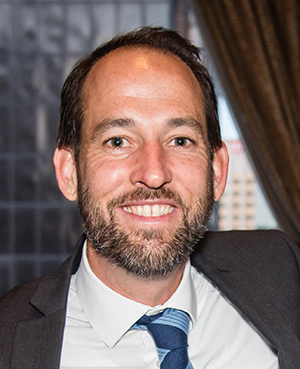Editor’s note: This past January, ASA surveyed its members about what it takes to be a leader in the field of aging, what members would like to learn about how to develop leadership knowledge, skills and abilities, and who best personifies leadership. ASA members identified respected leaders in aging—many of whom are well known to the ASA community and to the field at large. This following Q&A with Kevin Prindiville is one in a series of leadership profiles we will feature on Generations Now blog in the coming months.

Kevin Prindiville is Executive Director of Justice in Aging (JIA). A nationally recognized expert on Medicare and Medicaid policy, he has served as counsel in several class action lawsuits protecting low-income older adults’ access to public benefits. He frequently testifies before legislators, presents at national conferences and works with federal and state regulatory agencies. Prindiville serves on ASA’s Board of Directors and has served on its Generations Editorial Advisory Board.
JIA uses the order of law to fight senior poverty and advocate for broad systemic reforms that will improve elders’ access to affordable healthcare, ensure economic security and access to the courts for older adults with limited resources. The nonprofit also conducts lots of legal training for the aging network, and uses that training to advocate for big changes.
“Our work increasingly is focused on issues of equity, racism, sexism, homophobia and xenophobia,” said Prindiville. “We are centering our advocacy in the experience of older women, people of color, immigrants and LGBTQ elders to ensure they can age with dignity, regardless of financial circumstances.”
Generations Now: How might you describe the way leadership in the field of aging differs from leadership in other fields?
Kevin Prindiville: Leadership in aging is interesting in that it fits at the intersection of so many issues. Aging touches all of our lives, but impacts people’s lives so differently, dependent upon one’s experiences. It requires a great ability to understand your own experiences and how they might relate to the people you work with. It requires an openness—you have to have empathy and the ability to listen, and to build connections and bridges.
Aging adds a complexity to leadership as it touches everything, but is pushed aside. As a leader you see the connections between aging and everything else, but you also notice that others tend not to see those same connections. You need to have this awareness while bringing others along to see how whatever topic you’re addressing impacts aging.
GN: How did you use networking to progress in the field of aging?
KP: Networking is incredibly important, as there is nothing you can do alone, especially in policy work. Policy advocacy really requires partnerships, and the way to build partnerships starts with personal connections. Connecting is really valuable to me, and the best way to build those connections is through having a shared mission. Finding things you care about that others care about too, and finding opportunities to work together. Really getting to know people as people, and then doing important work together.
For me, personally, networking has also led to connecting with great mentors. People who have been champions for me, and gave me opportunities to take on new challenges and responsibilities. I see how valuable that has been for me, and look to do the same for others. Finally, in building networks, it is important to always be thinking about diversity and inclusion. Create networks that include people who come from different backgrounds and experiences to create more opportunities for learning from diverse perspectives.
GN: What sort of education did you find most helpful?
KP: Well I’m lawyer by training, and legal education is very helpful in thinking critically about how to solve problems. I learn by doing, so having the opportunity to roll up my sleeves up and solve specific problems—in policy or in helping to run an organization. Getting opportunities to figure things out and move forward.
I also look for opportunities that require me to play a role different than the one I normally play in my “day job.” For example, serving on the Board of Directors at ASA has taught me a lot about running Justice in Aging. And serving on a government advisory committee where I am asked to help set policy priorities has taught me a lot about how to be a more effective advocate with policymakers.
GN: What do you think is the most critical skill to have as a leader?
KP: There are two. One is having a moral clarity about what you think is the right thing. The second is social-emotional skills. The ability to let people know what your sense of right is, and to understand how others may be experiencing things, being attuned to how what you’re doing impacts others.
GN: Can you speak to one leadership challenge encountered on the job and how you met it?
KP: These last almost four years been a constant challenge. We’ve been working in a really difficult policy environment. It is hard to make positive change while also dealing with constant threats to healthcare and the economic security of older people. Because so many of the attacks on healthcare and other programs have been identity-centered (often targeting people based on their race, gender, age, disability, LGBTQ identity, immigration status), the work has felt personal in a new and different way. This has been stressful for our staff and partners in this work.
Responding to this challenge has required an intentional effort to really communicate the impact we’re having as an organization, to help my colleagues see that we are making a difference in the work we are doing. We also work to create a culture where everyone at Justice in Aging can bring their whole self to the work. Creating a diverse, inclusive and equitable organization is critical.
GN: What might you say to inspire younger potential leaders in the aging sector?
KP: Get ready to work! We need passionate, innovative, strong, committed leaders in this space. Aging is not a sexy issue in our society, and to me that means the work we are doing must be important. As leaders in this space you have the potential to make significant and lasting change that will benefit our families, communities and the entire country. If you are a helper, solver, advocate or changemaker, there is not a better place for you to be using your talents today.













